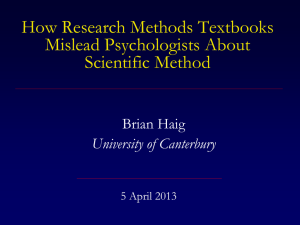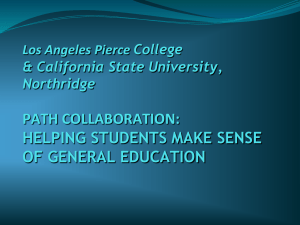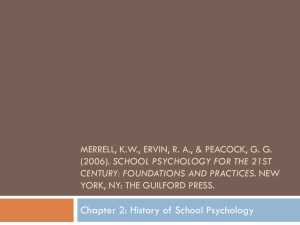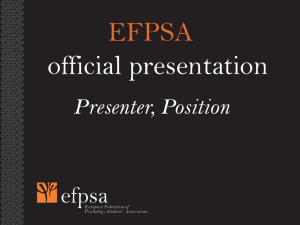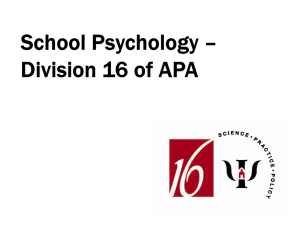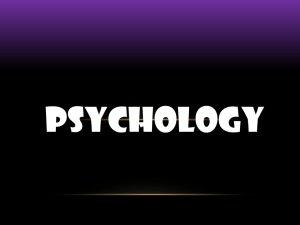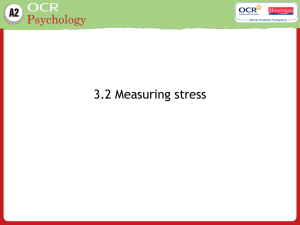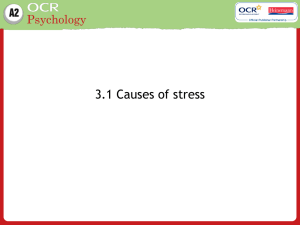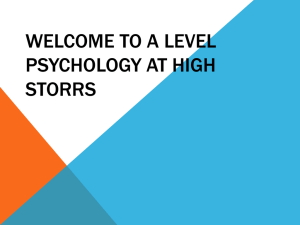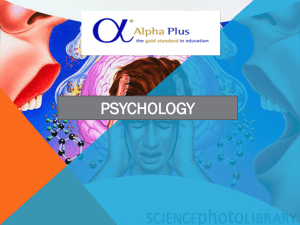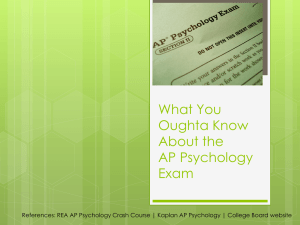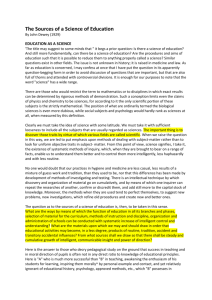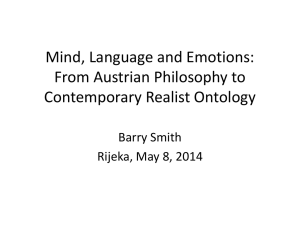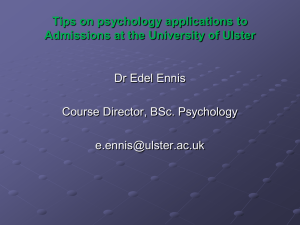Methodology as a Key to Reforming Psychology`s Research
advertisement
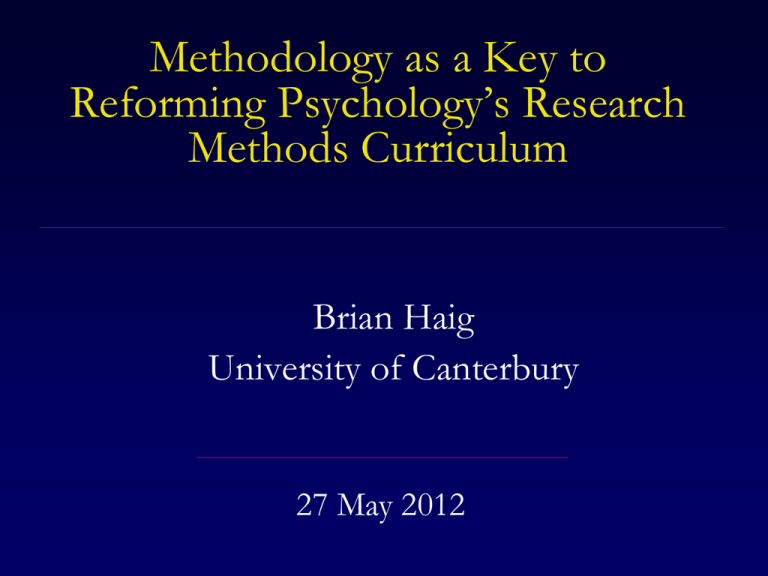
Methodology as a Key to Reforming Psychology’s Research Methods Curriculum Brian Haig University of Canterbury 27 May 2012 Introduction Kuhn (1970) argued that textbooks provide a dogmatic initiation of learners into established research traditions. Psychology’s textbook-oriented methods curriculum does much the same. Therefore, this curriculum cannot be a source for a genuine education in research methods. A basic limitation of psychology’s research methods instruction is that the methods dealt with are not properly informed by their accompanying methodology. The neglect of methodology leads to an impoverished understanding of the methods. The Nature of Methodology Methodology is the interdisciplinary field that studies methods. It draws importantly from the disciplines of statistics, philosophy of science, and cognitive science, among other disciplines. Methodology describes relevant methods and explains how they reach their goals, it critically evaluates methods against their rivals, and it recommends what methods we should adopt to reach our chosen goals (Nickles, 1987). Methodology is naturalistic; it is a substantive domain that uses the methods of science to study methods themselves (e.g., Proctor & Capaldi, 2001a). The Importance of Philosophy of Science The philosophy of science is an important methodological resource that research methods teachers largely neglect. Its occasional use mostly draws from sources that are 40 to 50 years out of date. This neglect leads to a failure to consider key methodological ideas to do with research problems, scientific method, confirmation, theory, models, causation, explanation, and scientific discovery (Blachowitz, 2009; Proctor & Capaldi, 2001b). Much philosophy of science is now philosophy for science, and contains detailed knowledge about specific methodological issues, strategies, and methods. Example of Poor Understanding: NHST Psychologists have a poor understanding of NHST. Psychology textbooks unwittingly present an inchoate amalgam of the Fisherian and Neyman-Pearson schools of thought . This virtually guarantees conceptual confusion by the learner (Gigerenzer, 2004). Researchers in psychology mistakenly take NHST beyond its proper concern with sampling uncertainty and use it to test substantive hypotheses and theories (Meehl, 1967). Alternatives to NHST, such as Bayesian statistical inference, are typically not presented. The Disregard of Scientific Method The methods curriculum, including its textbooks, gives little attention to the topic of scientific method , despite its centrality in science (Blachowicz, 2009). This curriculum should give due regard to prominent theories of scientific method, such as inductive, hypothetico-deductive, and abductive theories. Knowledge of these methods would help learners understand the process of phenomena detection (inductive method), the complexities of theory testing (revised hypothetico-deductive method), and the nature of explanatory reasoning in science (abductive method) (Haig, 2005). A Narrow View of Data Analysis Psychology’s methods curriculum concentrates on confirmatory data analysis at the expense of exploratory data analysis (Tukey, 1980). Both are important. Initial data analysis, exploratory data analysis, and computer intensive resampling methods, such as the bootstrap, all deserve inclusion in the standard methods curriculum. Relatedly, the strategies of close and constructive replication should be emphasized as well. Psychology’s methods curriculum is poor at dealing with research strategies. Philosophy of science can help here. The De-emphasis on Theory Construction Methods textbooks in psychology emphasize data analysis at the expense of theory construction. At best, textbook treatments of theory construction focus on orthodox hypothetico-deductive theory testing. This method is confirmationally lax. Methods specifically tailored to theory generation (e.g., exploratory factor analysis), theory development (e.g., analogical modelling), and theory appraisal (e.g., inference to the best explanation) all deserve a place in the methods curriculum (Haig, 2005). Conclusion Methodology is the appropriate source for a genuine understanding of research methods. Psychologists tend to neglect methodology and therefore poorly understand the methods they use. Psychology’s methods curriculum is narrow and ignores many important developments in methodology. Statisticians are not the guardians of scientific method. Nor are they expert about inferential and interpretive problems of statistical methods. Research methods courses should be taught by teachers who know about research methodology. References Blachowicz, J. (2009). How science textbooks treat scientific method: A philosopher’s perspective. British Journal for the Philosophy of Science, 60, 303-344. Gigerenzer, G. (2004). Mindless statistics. The Journal of Socio-Economics, 33, 587-606. Haig, B. D. (2005). An abductive theory of scientific method. Psychological Methods, 10, 371388. Kuhn, T. S. (1970). The structure of scientific revolutions (2nd ed.) Chicago: University of Chicago Press. Meehl, P. E. (1967). Theory testing in psychology and physics: A methodological paradox. Philosophy of Science, 34, 103-115. Nickles, T. (1987). Methodology, heuristics, and rationality. In J. C. Pitt & M. Pera (Eds.), Rational changes in science (pp. 103-132). Dordrecht: Reidel. Proctor, R. W., & Capaldi, E. J. (2001a). Empirical evaluation and justification of methodologies in psychological science. Psychological Bulletin, 127, 759-772. Proctor, R. W., & Capaldi, E. J. (2001b). Improving the science education of psychology students: Better teaching of methodology. Teaching of Psychology, 28, 173-181. Tukey, J. W. (1980). We need both exploratory and confirmatory. American Statistician, 34, 23-25.




